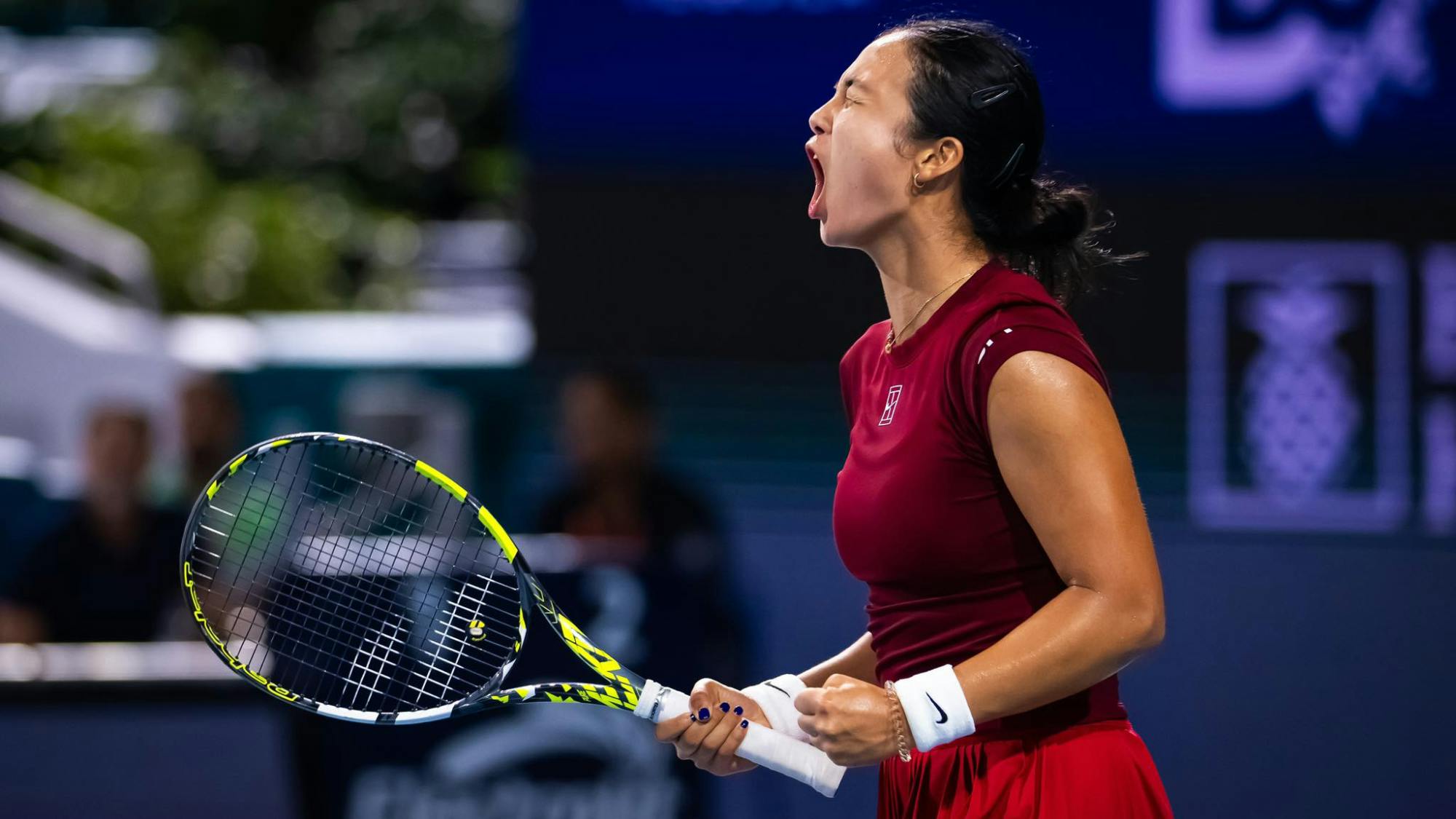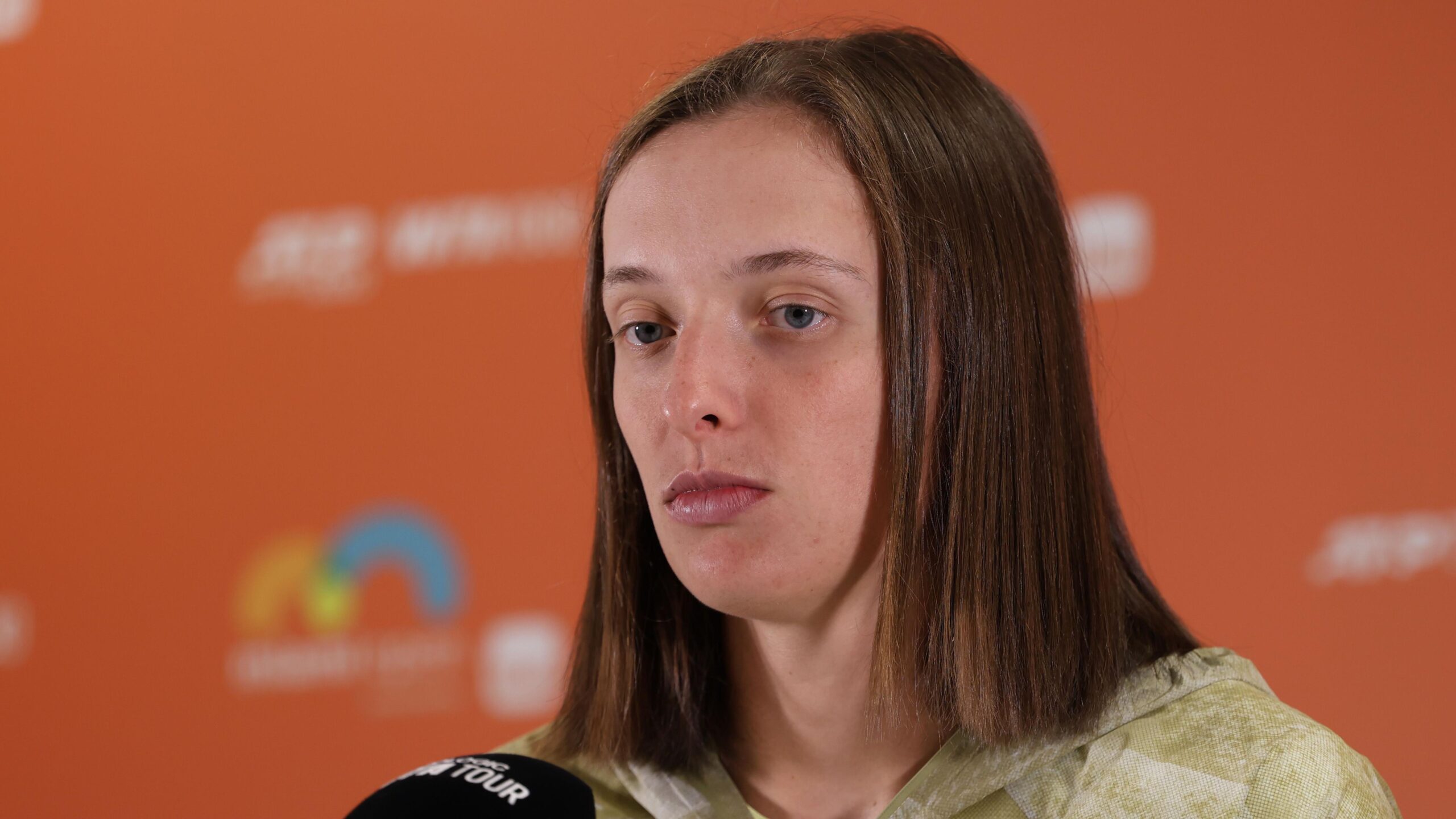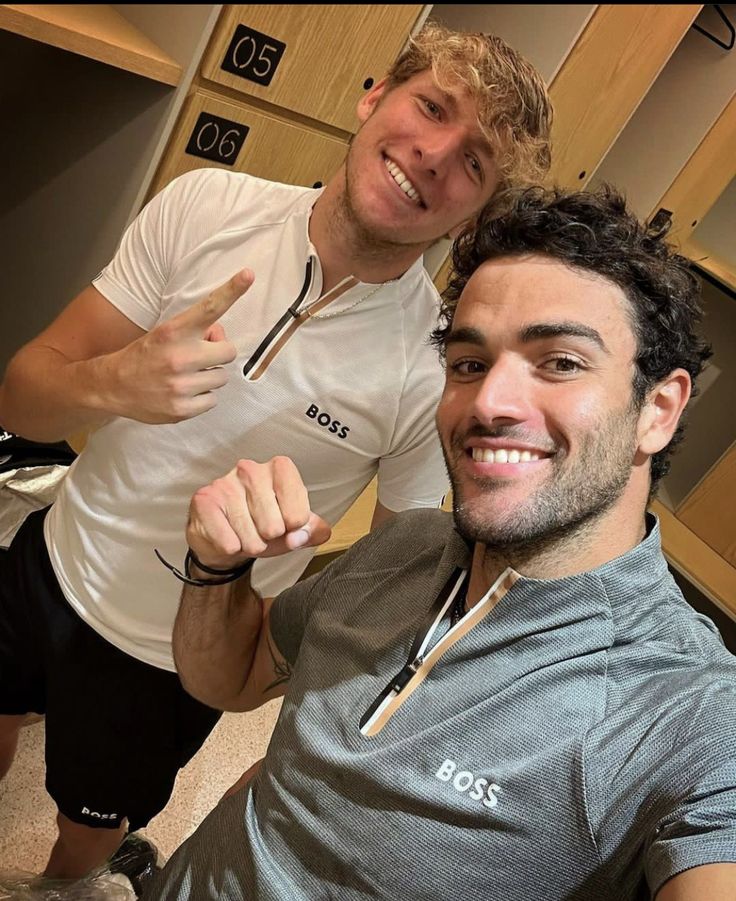When Alexandra Eala walked off the red clay courts of Roland Garros with her arms raised and eyes welled with emotion, she wasn’t just celebrating a victory—she was making history for a country that had long dreamed of seeing one of its own on tennis’s grandest stage. At just 19 years old, Eala has become the first Filipina to reach a Grand Slam semifinal at the French Open, igniting a surge of pride across the Philippines and proving to a new generation that impossible is just a word.
Focus Keyphrase: Alexandra Eala French Open
The Rise of a Tennis Dreamer
From the heat of Manila to the storied courts of Paris, Alexandra Eala’s journey is nothing short of extraordinary. Born into a sports-loving family, Eala was exposed to tennis at the age of four. Her uncle, Noli Eala, a former commissioner of the Philippine Basketball Association, and her mother, Rizza Maniego-Eala, a former Southeast Asian Games medalist in swimming, always believed that sports could be more than just play—it could be legacy.

By age 12, Eala was already training at the prestigious Rafa Nadal Academy in Mallorca, Spain. While homesickness was a constant shadow, Eala poured herself into the game, learning not just technique but resilience. Clay, in particular, became her ally—a surface that demands patience, power, and intellect. It’s no coincidence that her breakthrough came at Roland Garros, the temple of clay court tennis.
“I Proved It’s Possible”: The Emotional Weight of a Nation
When Alexandra said, “I proved it’s possible,” she wasn’t just talking about making the semifinals of the French Open. She was referring to something much deeper. In that statement echoed the voice of countless young Filipino girls who had been told tennis was a luxury, not a path. She was speaking for a nation whose sporting hopes are often pinned on basketball courts, boxing rings, or pool lanes.
Her presence in the French Open semifinals is more than a personal triumph—it’s a cultural shift. She is redefining what success looks like for Filipino athletes, especially young women, and placing tennis firmly on the Philippine sports map.
The French Open Run: Heart, Grit, and Clay-Court Mastery
Eala’s road to the French Open semifinals was a showcase of strategic brilliance and unshakable resolve. From outlasting seasoned opponents to mastering grueling rallies, Eala demonstrated why she is not just a promising player but a serious contender.
She took out a top-20 seed in the second round, shocking analysts and thrilling fans back home. Her left-handed forehand, often loaded with topspin, wreaked havoc on her opponents. But it was her mental game that stood out. Each match was a chessboard, and she played it like a grandmaster.
In the quarterfinals, she faced a three-set battle against a clay court specialist, where she had to dig deep into her stamina and belief. As the final point landed just inside the baseline, she dropped her racquet and looked up, as if absorbing the weight of the moment. This wasn’t just about ranking points—it was about proving that Filipinas could dominate on a global stage.
Breaking the Barriers of Representation
Historically, tennis has lacked diversity in many parts of the world. For a Filipina to break through at Roland Garros is not only rare—it’s revolutionary. Eala’s success serves as a powerful counter-narrative to the notion that only those from traditional tennis powerhouses can thrive.
Representation matters. For every young girl watching Alexandra play with her signature focus and humility, a door opens. Suddenly, the dream doesn’t feel so far away. Suddenly, tennis courts across the Philippines don’t feel so quiet.
A New Role Model for Filipino Youth
Alex Eala’s impact transcends sports. She’s a role model for discipline, ambition, and courage. In a world of instant gratification, her story is one of persistence and sacrifice. She left home at a young age. She spent holidays without her family. She chose lonely nights and endless drills because she believed in the bigger picture.
And that’s why so many young Filipinos—athletes or not—see themselves in her. She embodies the value of “sipag at tiyaga” (hard work and perseverance), cultural hallmarks that run deep in Filipino families. She shows that with the right mindset and relentless effort, global dreams are within reach.
Social Media Eruption and Nationwide Pride
The moment Eala clinched her semifinal berth, social media in the Philippines exploded. Hashtags like #AlexEala, #ProudPinoy, and #RolandGarrosHero trended on X (formerly Twitter). Celebrities, politicians, and fellow athletes rushed to praise her. Even President Marcos issued a congratulatory message, acknowledging her historic feat and the pride she brought to the country.
Filipino netizens, ever passionate and proud, flooded comment sections with emojis, Filipino flags, and heartfelt messages. For a nation that unites in rare moments of sporting success, Eala’s victory was more than a tennis win—it was a moment of national togetherness.
The Rafa Nadal Factor
Eala often credits the Rafa Nadal Academy not just for honing her skills, but for shaping her mindset. Nadal’s influence is visible in her game: relentless court coverage, fighting for every point, and a warrior-like mentality. But perhaps more importantly, it’s in her humility and grace under pressure.
At Roland Garros, the house that Nadal built with 14 titles, Eala looked perfectly at home. That’s no accident—it’s the result of years of hard work, mentorship, and belief instilled by the very place that has bred champions.
What’s Next for Alex?
With her French Open campaign still underway, the world is watching closely. Whether or not she goes all the way, her place in history is already secure. But knowing Eala, she’s not settling. Her eyes are on the prize—Grand Slam glory, world top-10 ranking, and becoming a force in women’s tennis for years to come.
Beyond the court, she’s already expressed interest in helping grow tennis in the Philippines. From grassroots programs to partnerships with local sports organizations, she understands that true legacy lies in lifting others as you rise.
The Bigger Picture: Redefining Success for Filipinos
For decades, Filipino athletes have been underrepresented in global individual sports. Eala’s success is changing that narrative. She is joining the ranks of Hidilyn Diaz, Manny Pacquiao, and EJ Obiena—trailblazers who are expanding the definition of what it means to be a successful Filipino athlete.
More importantly, she’s reminding the world—and the Philippines—that greatness knows no borders, no race, and no financial background. It just needs a spark, a chance, and someone bold enough to believe.
A Movement Begins
If there’s one thing we know about Filipinos, it’s that they rally behind their heroes. With every game Eala plays, she’s not alone—she carries the dreams of a nation. And now, more than ever, the Philippines is believing in tennis.
Public and private institutions are taking notice. There’s renewed discussion about building better training facilities, funding young athletes, and creating more tennis exposure in public schools. Alexandra Eala is not just inspiring change—she’s accelerating it.

Final Thoughts: Alexandra Eala’s Defining Message
“I proved it’s possible.”
Those words will be etched in the hearts of millions. Not because they came after a stunning Grand Slam run, but because they broke open a new chapter in Filipino sports history. Alexandra Eala has reminded us that dreams—no matter how far-fetched—can become real with unwavering faith, hard work, and fearless conviction.
As she continues her French Open journey, one thing is certain: she is not just chasing history—she’s creating it.


